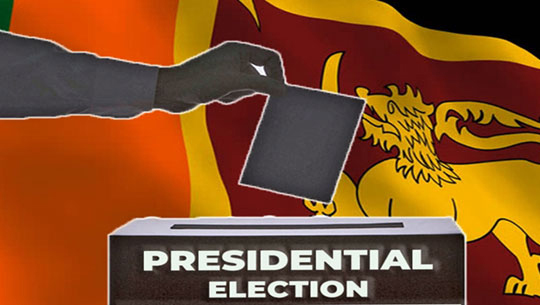By Arun Kumar Shrivastav
Sri Lanka will hold its presidential election on September 21, 2024, in which 17 million people out of its total population of 22 million will vote. As Sri Lanka goes for the election, foreign news analysts believe the country will choose “new vision, bold reforms and steady leadership.”
Altogether, 38 candidates are running for office, including President Ranil Wickremesinghe, who is an independent candidate. Wickremesinghe introduced strict austerity measures and hiked taxes to ensure a normal supply of food, fuel, cooking gas, and medicine, and he is expecting the voters to give him another chance to bring the country’s economy back to normalcy.
However, Wickremesinghe, a six-time prime minister, is considered one of those politicians of the older generations who should take the blame for the current economic mess.
Anura Kumara Dissanayake, the leader of a Marxist coalition, National People’s Power, has emerged as a key challenger to Wickremesinghe. Another challenger is Sajith Premdasa from Wickremesinghe’s party, the United People’s Power. After a split, Premdasa, who was a deputy to President Wickremesinghe, is now the leader of this party. He is another candidate in the Sri Lanka presidential election. From the Rajapaksa clan, Mahinda Rajapaksa’s son Namil Rajapaksa is contesting the election. One of these four leaders is expected to emerge as the next President of Sri Lanka.
While these candidates have outlined their economic priorities, given the limited room for manoeuvring in the face of scarce resources and heavy external debts, their electoral promises are hardly taken seriously. While Dissanayake is popular among the youth who want an efficient and corruption-free government, Premdasa is banking on minority Tamil votes, and Wickremesinghe has recently appointed a Muslim minister with an eye on Muslim votes. While everyone wants corruption to end and the normal state of the economy to be restored, no central issue dominates the election.
Former Finance Minister Eran Wickramaratne says the biggest problem in Sri Lanka is not the economy but the absence of the rule of law. “If the rule of law is upheld and every citizen feels that the law applies equally to everybody, irrespective of status, power or wealth, every citizen can live with dignity. Knowing that the law works, foreign investors will gain confidence about investing in this country. Speaking at the unveiling of the SJB blueprint [Samagi Jana Balawegaya (SJB) of Sajith Premdasa], I reiterated that an SJB govt will uphold and promote the rule of law, to take the economy towards a real recovery, and rapid growth,” he said in a post on X.
Sri Lanka government employees and military personnel have begun casting their votes by post. About 700,000 government employees are eligible to vote.
Due to its strategic location in the Indian Ocean, international powers vie for influence in Sri Lanka. Neighbouring regional powers India and China are often seen competing for influence in this island nation. While China built several infrastructure projects and acquired the Hambantota port and around 15,000 acres on a 99-year lease, India has pumped in over $4 billion during the economic crisis to ensure it does not collapse under the weight of external debts, mostly Chinese. During the reign of Mahinda Rajapaksa (2005-2015), Sri Lanka undertook several expensive infrastructure projects funded by Chinese loans, which many think are white elephants, serving no actual purposes.
Besides India and China, many other countries and blocs, including the US and EU, are keen to have an influence in Sri Lanka because of its strategic location. About 80% of international cargo passes through this region, and anyone having a strong base in Sri Lanka can have the power equations tilted in its favour. For this reason, international powers would keep a close watch on the Sri Lanka election and try to develop influence with anyone who wins.
As the Sri Lankan economy is still in a precarious state, anyone who wins the Presidential election does not have much freedom regarding how they want to implement economic or international policies. Sri Lanka would remain under pressure from lenders and donors. However, a presidential election in which people participate decisively and remain engaged with the government that comes to power after the election is crucial for the country to stay united and fend off foreign interference. (IPA )


